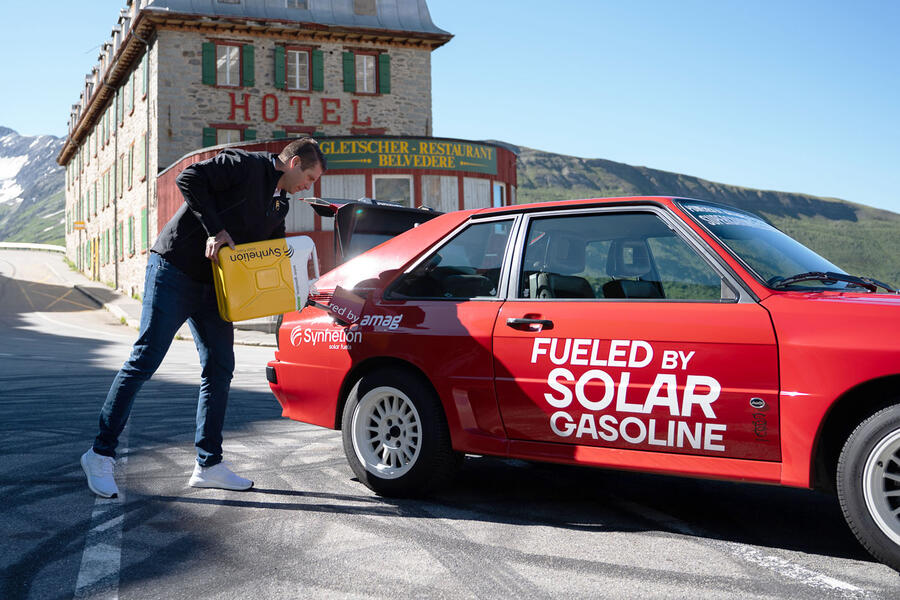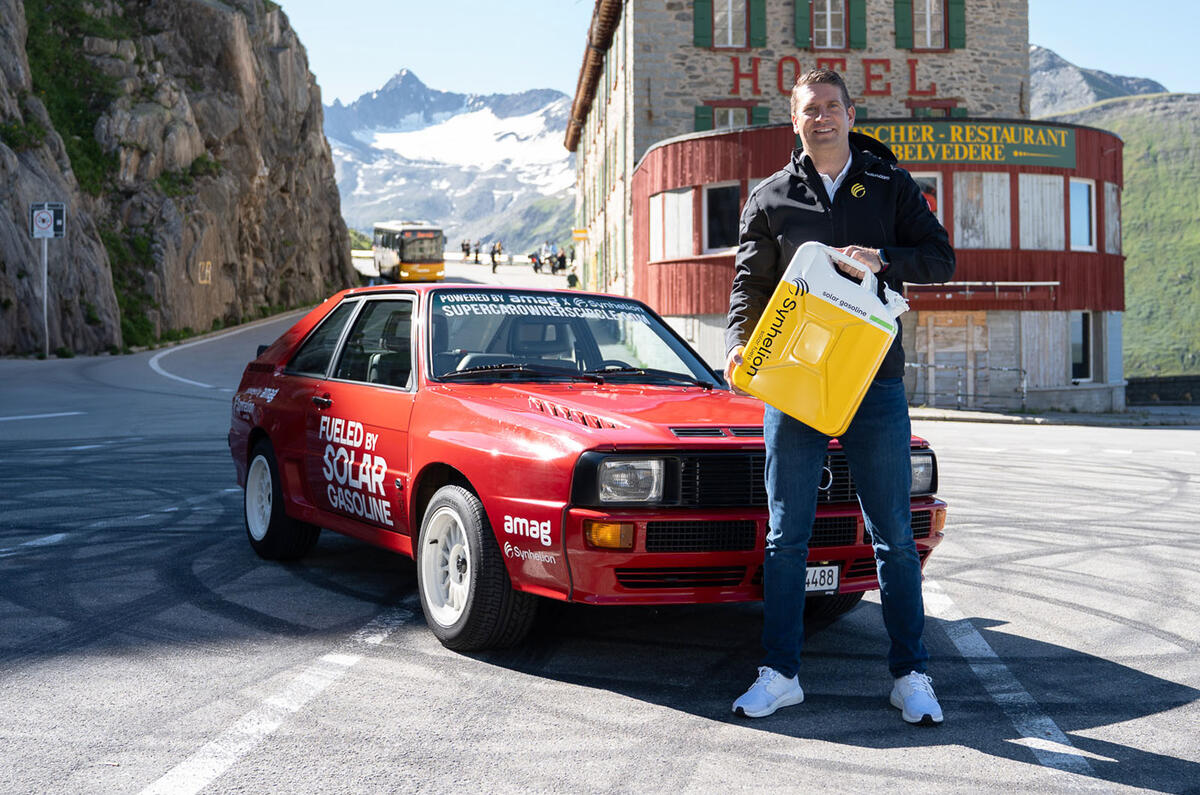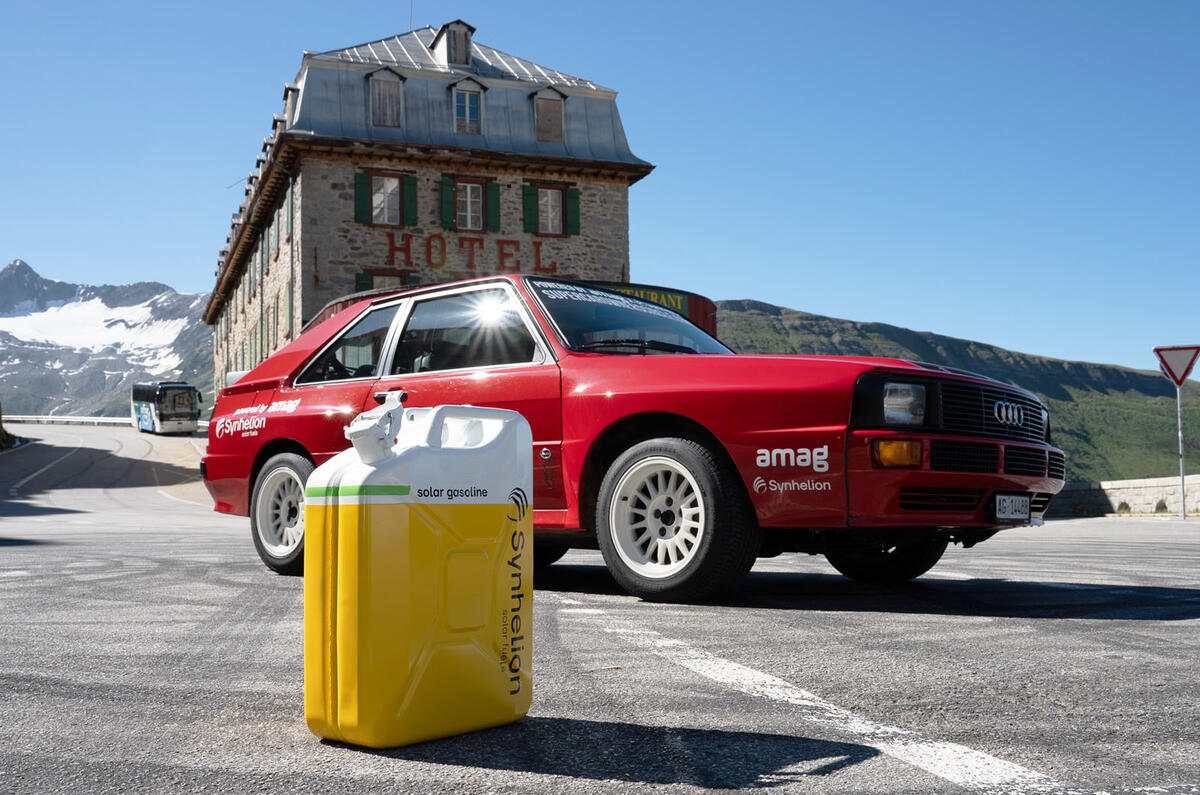Synthetic petrol is not a silver bullet for decarbonising transport but will instead complement electric cars in years to come, according to the chief of solar fuels start-up Synhelion.
The firm last year opened its first plant in Jürich, Germany, using solar energy and waste biomass to produce “nearly” carbon-neutral jet fuel, diesel and petrol.
These are virtually identical to their fossil-based counterparts and can be used in cars or planes without any modifications.
But it does not eliminate the problem of particulate emissions (albeit reduced, as synthetic fuel does not have the contaminants found in fossil fuels), and producing it is less efficient than using the required electricity to power an EV directly.
“If you produce electricity in the UK or in Switzerland, I think it makes sense to use that electricity primarily to electrify [cars],” conceded Philipp Furler, CEO and founder of Synhelion. “You lose a lot in efficiency because of the process.”
He added: “We don’t really see a competition between the two”.
“The electricity you produce locally at home should be directly used for electrification, but the stuff which you cannot use could be used to produce fuels to store.”
He added that synthetic fuels should be “produced at really good locations in Europe or outside Europe and then transported”, while the electricity generated in Europe should primarily be used for EVs.

According to Furler, the electricity generated by a small wind or solar powerplant in Europe could be used to power 1700 electric cars annually, compared with around 450 ICE cars using synthetic fuels.
“So it doesn’t make sense to produce fuels; you should instead use it directly,” he said. "That I fully agree with. However, the point is you don’t need to produce the fuels locally.”
By instead using a solar plant in Morocco or a wind plant in Chile, Furler suggested, you could make use of electricity that would not otherwise have made it to mainland Europe to clean up transport.
Moreover, Furler claimed, such a plant could produce three times more electricity per year than its equivalent in Europe. That means you could cleanly fuel thousands of ICE cars in Europe using that electricity, rather than zero EVs – because that power cannot be transported, whereas the liquid petrol can be.










Join the debate
Add your comment
Six Game stands out as a premier online social betting application that allows users to bet on online casino games, live matches, and live casino events to win real money.
Six Game stands out as a premier online social betting application that allows users to bet on online casino games, live matches, and live casino events to win real money.
The HR13 1.3 turbo has peak torque that comes on earlier and holds it longer, giving the car more powerful acceleration from low revs — great for new racers. Suika game